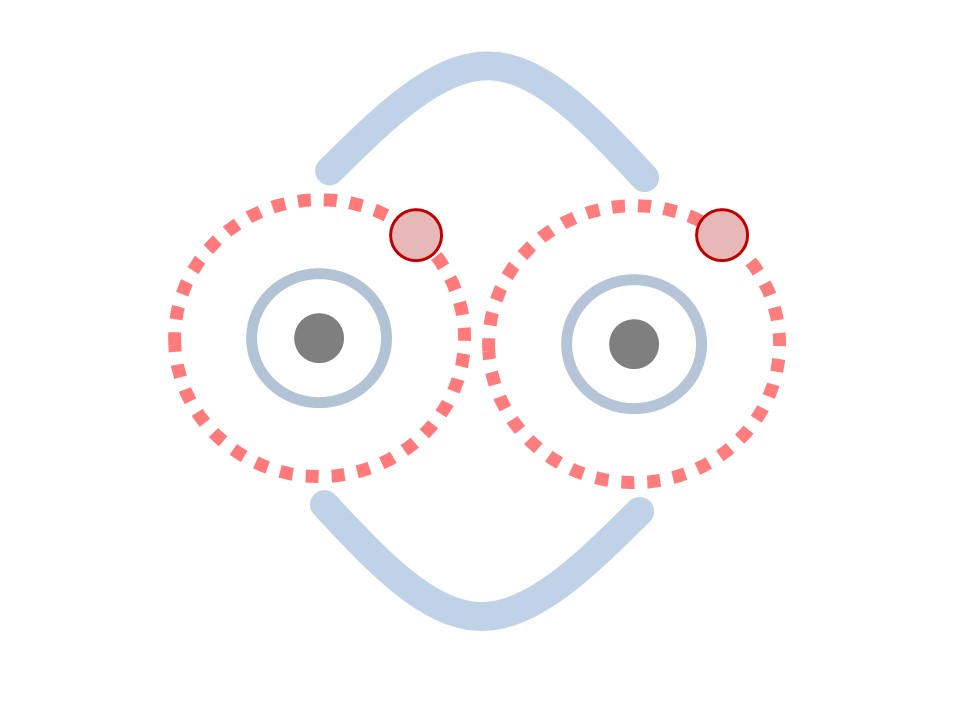Cold Rydberg atoms

Directed percolation arises from the interplay between two basic processes (left). By varying the rate of the “offspring production” compared to the (fixed) “sudden death” in our Rydberg atom system, we can explore the directed percolation phase transitio
Description
Rydberg-atom quantum simulators for molecular physics calculations
Quantum simulators are highly controllable quantum systems that can be used to emulate the properties of other quantum systems that are difficult or impossible to simulate on classical computers, such as (bio-)molecules or complex materials with peculiar properties (e.g., high Tc superconductors). In our lab we work towards realizing such quantum simulators using Rydberg atoms – i.e., atoms in highly excited electronic states – that interact strongly and can be accurately controlled and measured.
We are particularly interested in realizing so-called quantum co-processors for molecular physics calculations, which could one day be used to design novel molecules, also for pharmaceutical purposes. In such a quantum co-processor, the Rydberg-atom quantum simulator will carry out a particular step in a combined classical-quantum algorithm, such as approximating energy levels of the molecule. The results of that simulation are then fed back into the classical part of the algorithm and iterated until the desired result is found.
As an intermediate step towards the above goal, we are currently investigating driven-dissipative Rydberg systems that realize a quantum percolation model. Quantum percolation is a paradigm that can be applied to a vast array of physical phenomena, ranging from spin glasses to high-Tc superconductivity. By controlling both the Rydberg excitation that leads to conditional excitation events and also the dissipative part of the dynamics (due to spontaneous emission and black-body radiation induced transitions, with the addition of controlled dissipation via laser pumping), we investigate the crossover between classical percolation and (coherent) quantum percolation, for system sizes for which classical simulations are impossible due to the exponential scaling of the system’s Hilbert space.
